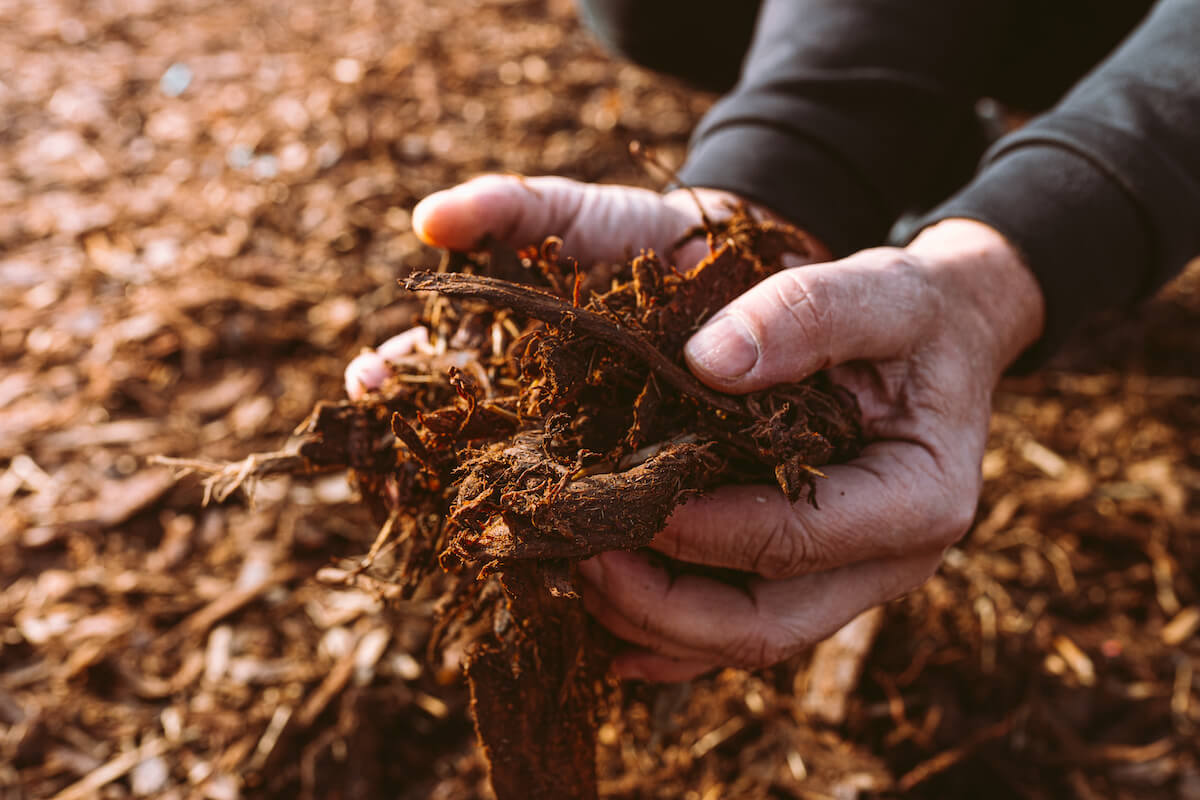Sustainable landscaping is no longer just a trend; it’s an essential approach to preserving resources and enhancing the health of our environment. One of the most impactful ways to adopt sustainable practices is by using organic mulches. In this blog, we’ll dive deep into the benefits of organic mulches and how they contribute to a thriving, eco-friendly garden.
What Are Organic Mulches?
Organic mulches consist of natural materials like wood chips, bark, straw, leaves, and compost. These materials decompose over time, enriching the soil with nutrients. Unlike synthetic mulches, organic options support a living ecosystem in your garden while blending seamlessly with natural landscapes.
Conserving Soil Moisture
One of the primary benefits of organic mulch is its ability to retain soil moisture. By acting as a protective barrier, mulch reduces water evaporation, ensuring plants have consistent hydration even during hot, dry periods.
This is particularly beneficial in drought-prone regions, where water conservation is a top priority. A thick layer of mulch around your plants can cut watering needs by up to 50%, saving both water and money.
Regulating Soil Temperature
Fluctuating soil temperatures can stress plants, affecting their growth and productivity. Organic mulch acts as an insulating layer, keeping the soil cooler in summer and warmer in winter.
This temperature regulation is especially crucial for sensitive plants and young saplings, which thrive in stable conditions. Mulch also prevents soil from freezing too quickly during unexpected cold snaps, protecting plant roots.
Improving Soil Health
As organic mulches decompose, they enrich the soil with organic matter, improving its texture, fertility, and water retention. This process also fosters the growth of beneficial microorganisms and earthworms, which aerate the soil and break down nutrients for plants.
Regularly replenishing mulch layers ensures a continuous supply of nutrients to your plants, promoting long-term soil health and productivity.
Preventing Weed Growth
Weeds compete with your plants for nutrients, water, and sunlight. A thick layer of organic mulch suppresses weed growth by blocking sunlight, making it difficult for weeds to germinate and thrive.
This not only reduces the time and effort spent on weeding but also minimizes the need for chemical herbicides, aligning with eco-friendly gardening principles.
Reducing Erosion
Exposed soil is vulnerable to erosion from wind and water. Organic mulch protects the soil surface, preventing it from being washed or blown away during heavy rains or strong winds.
This erosion control is particularly important on slopes or areas with loose soil. By stabilizing the soil, mulch helps maintain the integrity of your landscaping design.
Enhancing Aesthetic Appeal
Beyond its practical benefits, organic mulch adds a polished and cohesive look to your garden. Materials like bark chips and shredded leaves come in various colors and textures, allowing you to choose an option that complements your landscaping style.
For example, dark wood chips provide a rich, natural contrast to bright green foliage, while straw mulch gives a rustic, farmhouse feel to vegetable gardens.
Embrace Sustainability with Organic Mulches
Organic mulches are a cornerstone of sustainable landscaping, offering benefits ranging from improved soil health to water conservation and weed suppression. By choosing organic materials, you not only enhance your garden’s beauty but also contribute to a healthier environment.
Start your sustainable landscaping journey today. Visit usrock.com to explore our premium organic mulches and other eco-friendly materials for your outdoor space!

